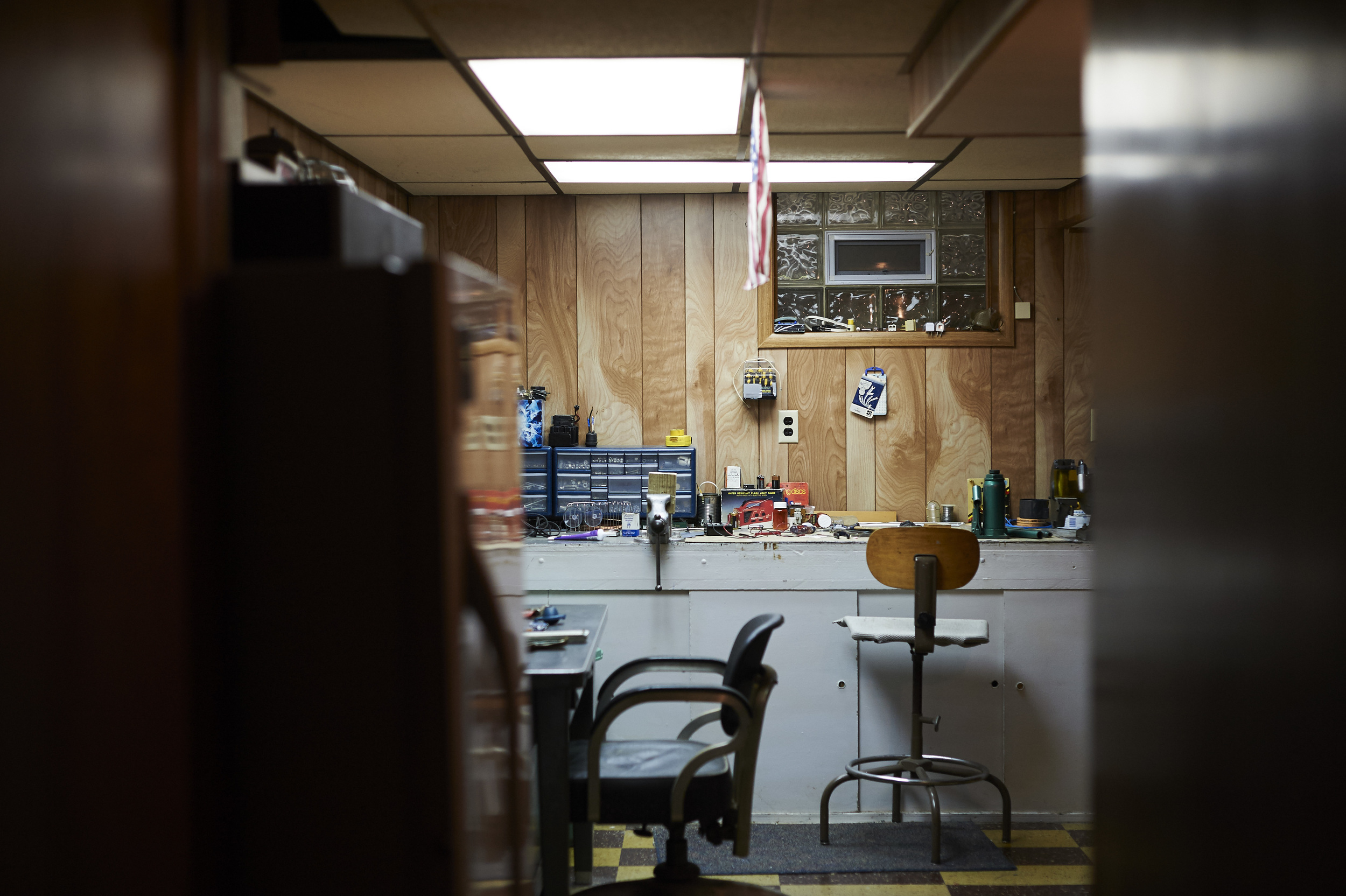

The Alois Page
The Alois Page
Herman & Rosemary aloi
“Life is an education”
Rosemary
Rosemary Valentino was born in Waynesburg, Ohio, to Italian parents who had immigrated from Roccaraso, Italy, in the province of Acquila.
She remembers her neighborhood as being close-knit, with a “nice mix” of different nationalities living close together and always visiting one another and ready to lend a hand.
Rosemary describes her early childhood as happy despite the sudden loss of her mother who lost a bout with pneumonia after a gallbladder operation at age 33.
To this day, Rosemary wonders how life would have been different without this great loss of her beautiful mother, especially because her absence would cause painful family instability and separations in the years to come. Rosemary, being the oldest daughter, with two sisters and a brother, was in the position to take care of the family from a very young age.
Her father, overwhelmed with family responsibilities, sent Rosemary’s youngest sister, Mary, back to Italy in order for her grandmother to relieve the burden of caring for another child—an event that Rosemary recalls as being very sad.
Rosemary’s father was a bricklayer and miner, and he struggled in and out of hospitals after sustaining an injury in the mine soon after the death of his wife.
After two or three years, he received a settlement for his injury, which he used to move the family back to Italy to see a doctor in Bologna.
During this time, Rosemary had been reunited with her sister, Mary, who had been living in Italy with relatives, and she and her other sister remained in Italy with their grandparents and relatives in Roccaraso.
Her father left after a year to come back to the United States, and her brother followed shortly afterwards, travelling alone at the age of 16 across the ocean, soon after, joining the American Air Force. The three sisters remained in Italy—Rosemary, for three years.
Rosemary recalls her grandfather fondly. He was a strong, bright, and influential man in the city with a melodic operatic voice, able to write and speak at least three languages.
He owned property and hotels in Roccaraso, which was and is still today renowned for being a stunning vacation town and skiing destination in Central Italy, located in the beautiful mountains of Abruzzo.
Rosemary loved her time spent in the beautiful mountain scenery of Roccaraso, Italy. She learned to ski on the slopes of Roccaraso, and her grandfather was very proud when she won a skiing race.
Referred to by her grandfather as the “Americanetta,” Rosemary went to school, and she remembers refusing to go along with the Fascist decrees in the schools because she “was an American,” a stance that they respected. “Being an American is a privilege, “ according to Rosemary.
“Being an American is a privilege”
In 1939, her father sent for her to return to the United States. Rosemary figured that her two sisters would be following her soon afterwards, but this was not the case as WWII broke out.
Rosemary had made the voyage to American by herself, taking a train from New York to the small town of Creighton, a community located along the Allegheny River near Pittsburgh, Pennsylvania.
Her heart was heavy knowing that her two sisters were struggling through the war in Italy and that her family was divided. She missed her family and life in the Italian mountains, but she knew that she was lucky to leave when she did.
“it’s sad to think about the small town demolished, like it was nothing”
The Germans wrought havoc throughout Abruzzo, and the beautiful town of Roccaraso was bombed and pillaged. “(The Germans) came, took everything, and left…it’s sad to think about the small town demolished, like it was nothing.”
Rosemary talks about how her grandfather and uncles in Italy were so thankful after the war to the Americans and the Marshall Plan who helped to rebuild “all of those little towns.”
Initially, Rosemary did not want to live in Creighton, PA. On top of the drastic change of scenery and the fact that her family was divided, she also had the household responsibilities of cooking cleaning, and taking care of the house, never able to truly have a childhood.
In addition, she had to make all new friends in her new American school. She remembers many good people befriending her during those years, but with all of her adult responsibilities bearing down, she decided to work instead of graduate from school.
Rosemary is an avid reader, and ever since she was six years old, she would “read every book that (she) could get her hands on.” She would have loved graduating, but sincerely believes that “everything you do in life is an education.”
Rosemary fondly recalls her initial memories of her future husband, Herman Aloi.
“He didn’t like me as much as I liked him”
Herman was a talented baseball player, and she first fell in love with Herman when he was wearing a particular yellow jacket on the baseball fields. “He didn’t like me as much as I liked him,” Rosemary laughs and explains.
She recalls how he used to tease her in assembly in school, not really paying much attention to Rosemary until years later when he returned from the service. Upon his return, both Rosemary and Herman worked for PPG, and this time around, their relationship blossomed.
They were soon married, and they had four children.
“We didn’t have anything given to us”
herman
Herman Aloi grew up in Creighton, Pennsylvania. He had a happy family, but due to their difficult financial situation, Herman and his siblings had to find ways to help out.
“My family never had to feed or clothe me”
Herman is still grateful for the fact that his father procured him a paper route because this permitted him to support himself from a young age; “My family never had to feed or clothe me.”
He had many responsibilities and worked very hard, and he takes pride in the fact that he was never a burden to his parents. “We didn’t have anything given to us,” Herman explains.
Aside from his duties, Herman played sports and enjoyed hunting and fishing.
During the war, Herman was stationed in the Pacific on the U.S.S. Maddox, a boat that patrolled the waters to safeguard against submarines.
In fact, his crew sunk three submarines during his years of duty. Herman worked in the engine room of the ship on the distribution board, and he recalls how focused he had to be during emergencies.
Amongst the many close encounters, he remembers an occasion when two Japanese suicide planes headed towards their ship.
They shot one down, but the second plane hit the ship, killing the thirty men who were on deck at the time.
Herman’s position inside the ship saved his life.
Herman’s two brothers saw action as well. His younger brother eagerly enlisted for the Navy, and tragically, a submarine sunk his ship after only four months of duty off of the coast of Sicily.
Herman’s other brother, Lester, was in charge of mail distribution on an island in the Pacific. Coincidentally, Herman found himself close enough to his brother’s base that with a few permissions and after combing the island, both brothers shared a joyous reunion on the other side of the world.
Upon Herman’s return from action, he started working for PPG, Pittsburgh Plate and Glass.
He married Rosemary soon afterwards.
together through it all
Both Rosemary and Herman are such hard-working people, and they share similar stories of youthful independence, courage, work ethic, and resiliency.
It is clear that they both seemingly skipped childhood to support their families, and their experiences could do nothing but strengthen them to be able to withstand some of the greatest challenges that were yet to come in their lives.
“Nobody can help you but yourself”
Tragic is not strong enough a word to describe two events that befell their family. They lost their daughter at a young age, and their son was murdered when he was living in Florida.
Rosemary describes their son as being “a free spirit, a gourmet chef…who loved his life.”
Despite the immense amount of pain and sorrow that this couple must carry and the ordeal that they had to go through, Rosemary and Herman display the utmost strength, grace, and dignity when discussing their experience of adapting to the pain.
“You go on for your family”
“Nobody can help you but yourself,” Rosemary describes when referring to the ultimate acceptance and road to finding deeper peace and healing. They credit their two remaining children as their inspiration for finding strength; “you go on for your family.”
Despite their hardships and many struggles over the years, Herman and Rosemary have only persevered and become stronger as individuals and as a married couple.
“You can’t dwell on the pain”
Rosemary described their difficult experience as a sore that eventually heals but never goes away. Rosemary’s amazing and selfless insight was very inspiring. “You can’t dwell on the pain; people have their own lives and everyone has problems. You have no idea what other people are going through…we think we are the only ones that have something?”
Her eloquence and perspective provoke nothing but pure admiration.






